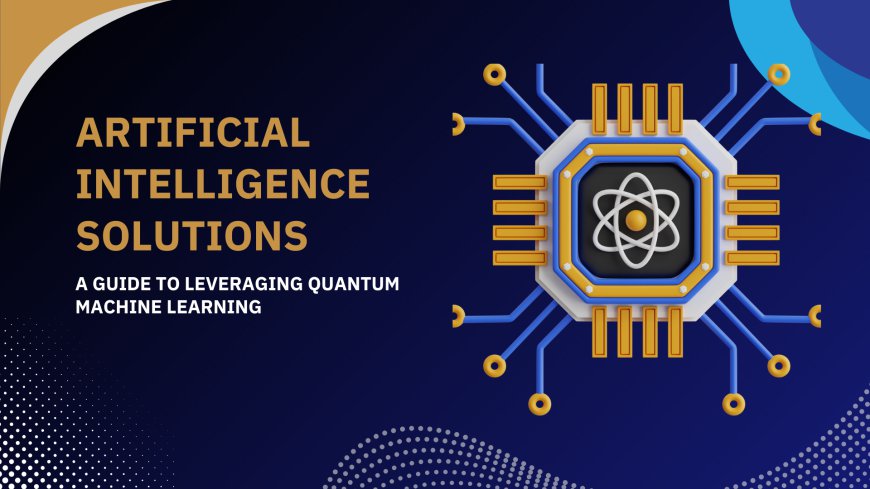Quantum Machine Learning: The Frontier of AI Innovation

Join our subscribers list to get the latest news, updates and special offers directly in your inbox

Artificial intelligence solutions have led to numerous technological advancements, one of the most groundbreaking being quantum machine learning. This innovation holds the potential to revolutionize the world, and it's the focus of this article.
Quantum Machine Learning (QML) combines machine learning—a subset of artificial intelligence—with quantum computing principles to enhance computational performance. Unlike traditional bits, QML uses quantum bits, or qubits, which can exist in multiple states at once. This unique capability enables the solution of complex problems at incredible speeds.
Quantum machine learning has become a key research area for organizations due to its potential for improved accuracy, efficiency, and speed. Quantum processing allows for the rapid handling of complex calculations, paving the way for new research and AI applications across various industries.
Now that we have a basic understanding of Quantum Machine Learning, let’s explore how quantum computers process data.
Basics of Quantum Machine Learning Quantum machine learning relies on fundamental concepts of quantum mechanics. At the atomic level, particles behave in ways that differ from our conventional understanding. Quantum computing leverages this unique behavior for digital processing.
Together, superposition and entanglement provide quantum computers with exponential computational power.
Quantum Logic Operations Quantum logic operations differ from classical logic by manipulating the quantum states of qubits. These operations leverage superposition and entanglement to perform calculations that classical computers struggle with.
Here are some basic quantum logic gates:
Quantum Circuits Quantum algorithms are built from sequences of quantum logic gates, often visualized as quantum circuits. Each gate manipulates one or more qubits to perform a specific function.
Quantum machine learning represents a significant step forward, providing computational capabilities that can potentially reshape the AI landscape.
RodrigoWallace Oct 30, 2024 0 8
lucyliu Dec 11, 2024 0 11
TheSixMoving Sep 23, 2024 2 14767
luxuryresidences Apr 30, 2025 0 14597
veronicablogz Sep 10, 2024 0 2981
sonalikaverma Oct 7, 2024 0 809
Zanto Oct 9, 2024 0 130
Zanto Oct 7, 2024 0 189
Zanto Oct 2, 2024 0 161